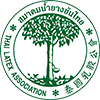Details of the economic conditions for October relative to the previous month are as follows:
The number of foreign tourists, after seasonal adjustment, remained stable from the previous month. Tourists from Malaysia and China decreased partly due to domestic factors, while tourists from other countries, such as South Korea, Singapore, and long-haul tourists, particularly from the United States, the United Kingdom, and Germany, continued to increase. As a result, tourism revenue, after seasonal adjustment, increased due to a higher number of cumulative tourist arrivals1 and a slightly higher spending per trip. Private consumption indicators, after seasonal adjustment, increased from the previous month across all major categories, partly due to the government's stimulus program (10,000-baht cash handout). Spending increased in consumption of 1) non-durables, driven by higher fuel consumption and sales of consumer goods, especially beverages, snacks, and tobacco, 2) durables, as reflected by higher motorcycle registrations and passenger car sales, 3) semi-durables, from higher imports of textiles and apparels, and 4) services, particularly in the hotel and restaurant category, which was in line with a greater number of Thai tourists and higher foreign tourist spending. The consumer confidence index slightly increased due to the government's stimulus program and reduced concerns over the flood situation.
The manufacturing production index, after seasonal adjustment, increased from the previous month from production in 1) chemicals, due to higher pharmaceutical production, 2) electrical appliances, which was in line with higher exports of air conditioners and domestic demand for household electrical appliances, following the government's stimulus program and improvement in the flood situation, and 3) food and beverages, such as animal feed and dairy products. However, production declined in some categories, including petroleum due to high inventory, as well as electronic circuits and components, from lower exports. The value of merchandise exports, excluding gold and after seasonal adjustment, remained stable from the previous month. Higher exports were observed in the machinery and equipment category thanks to increases in exports of transformers to North America, as well as the electronics category, driven by exports of hard disk drives to ASEAN. Meanwhile, exports of agricultural and agro-manufacturing products declined due to the easing of supply shortages in trading partner countries, resulting in lower exports of palm oil and rubber to India, as well as sugar to Cambodia. Additionally, exports of automobiles decreased due to lower exports of passenger cars and pickup trucks to ASEAN and Australia.
The value of merchandise imports, excluding gold and after seasonal adjustment, increased from the previous month in all major categories, including 1) raw materials and intermediate goods, driven by imports of crude oil and petroleum products, as well as electronic parts and electrical appliances from Taiwan, 2) consumer goods, led by imports of electric vehicles and mobile phones from China as well as pharmaceutical products, and 3) capital goods, excluding aircraft, mainly from imports of machinery and equipment from Japan and China.
Private investment indicators, after seasonal adjustment, increased from the previous month across all major categories. Investment in machinery and equipment increased as reflected in 1) higher imports of capital goods, particularly general-purpose machinery, electric motors, and ships, 2) increased domestic sales of machinery and equipment, especially general-purpose machinery, and 3) higher commercial vehicle registrations from tractors. Investment in construction also increased, due to higher sales of construction materials, including concrete blocks, cement, and precast concrete slabs, as well as improved permitted construction areas for residential, industrial, and factory buildings.
Public spending, excluding transfer payments, expanded from the same period last year due to increases in both current and capital expenditures by the central government. Current expenditures increased, primarily due to disbursements for educational management by educational agencies, as well as pensions and medical expenses for government officials. Investment expenditures also accelerated, driven by disbursements for transportation and education projects. Additionally, state-owned enterprise's investment expanded, from disbursements for public utility projects.
On the economic stability front, headline inflation increased from the previous month, primarily due to higher energy inflation, resulting from last year's low base effect from government subsidies. Meanwhile, fresh food prices decreased as vegetable prices fell, following higher output after the flood situation improved. Core inflation remained stable, with higher food prices being offset by lower personal care product prices. The current account surplus was similar to the previous month. The trade surplus was lower due to higher imports, while the deficit in services, income, and transfers declined due to lower profit repatriation by foreign businesses after a surge in the previous month. The labor market condition weakened due to lower employment in non-tourism-related service sectors, such as automotive trade and construction, which was consistent with an increase in the ratio of unemployment claims to total insured persons. As for corporate financing, the outstanding amount of funding slightly decreased from the previous month due to lower bond issuance in the real estate, energy, and trade sectors. Meanwhile, business financing through the equity market increased in the transportation sector, and net business loans increased in real estate, as well as hotels and restaurants. As for exchange rates, in October 2024, the baht against the U.S. dollar, on average, depreciated due to uncertainties over the Federal Reserve's policy rate decisions and the upcoming U.S. elections. ------------------------------------------------------ 1 The total number of tourists staying overnight in Thailand each day within that month Bank of Thailand 29 November 2024 |








